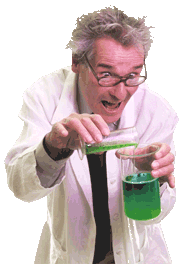At WikiMotors, we're committed to delivering accurate, trustworthy information. Our expert-authored content is rigorously fact-checked and sourced from credible authorities. Discover how we uphold the highest standards in providing you with reliable knowledge.
What Is an Octane Number?
An octane number is a number which reflects a fuel's resistance to knocking. Knocking occurs when fuel combusts prematurely or explodes in an engine, causing a distinctive noise which resembles knocking, rattling, or pinging. Engine knock can cause damage to the engine, and it indicates that the engine is not running as efficiently as it could be. Many engines come with specific octane rating recommendations.
Octane values are obtained by testing a fuel in controlled circumstances. Two different types of octane measurements can be obtained: the research octane number (RON) or motor octane number (MON). These numbers are obtained by testing fuels in different circumstances, with the MON putting more stress on the engine to see how fuels perform in challenging circumstances. The octane ratings on a gas pump often reflect an average value.

These numbers are calibrated against a scale. Two chemicals, heptane and iso-octane, are used to create benchmarks on the scale, with heptane being zero, and iso-octane being 100. When a fuel is tested in an engine, it is compared with a blend of heptane and iso-octane to see which blend most closely matches the fuel performance. If the blend includes 20% heptane and 80% iso-octane, for example, the fuel will have an octane value of 80. Octane numbers can be adjusted by putting additives in the fuel which will adjust the level of knock.
It is possible to have an octane number beyond 100, as iso-octane is just a point on the scale. High performance fuels often have very high octane values; rocket fuels, for example, have octane values over 100. The higher the octane value, the more pressure the fuel needs to combust. This is desirable, as the goal is to prevent actual explosions, and instead to create controlled ignition of the fuel. If a low octane fuel is put in an engine designed for high octane gas, the fuel will cause explosions, damaging the engine, because the engine puts a great deal of pressure on the fuel by design.
Drivers are usually concerned with octane number because they need to select the best fuel for their vehicles. As a general rule, it's best to follow the recommendations of the vehicle manufacturer. Putting high octane fuel in a car designed for fuel with a lower octane rating is not very productive. Conversely, some cars designed to run on premium fuel can run on regular, because the octane rating differs by a typically small percentage, although drivers should be aware that this can cause damage to the engine, and the practice is generally not advised.
AS FEATURED ON:
AS FEATURED ON:










Discussion Comments
I thought the knocking, rattling, pinging sound happens because there's not enough oil to lubricate the engine. I think most cars today run on premium fuel. It costs a little more but it's better for overall performance. I'll have to check my owners manual to find out what my pump octane number is.
I didn't know that the octane number for gasoline is what makes the difference between regular and premium unleaded. My vehicle uses premium but occasionally I put regular fuel in it to save a few cents at the pump.
Post your comments